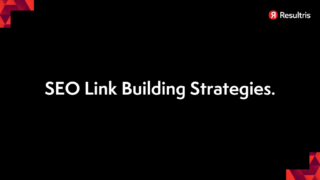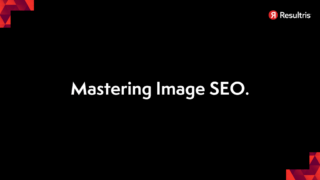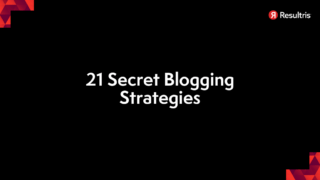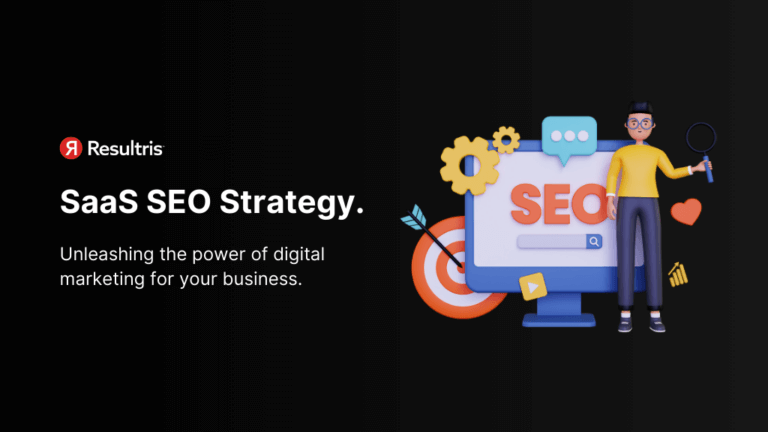
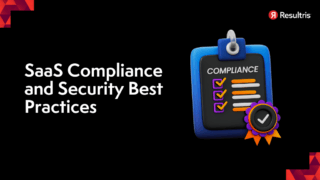
In the digital age, we’re all living in, getting noticed can be a tough nut to crack. It’s even more difficult when you’re running a Software as a Service (SaaS) business. With competition fiercer than ever before, it’s crucial for us to have an effective SaaS SEO strategy in place.
We’ve spent years honing our skills and refining strategies as a leading SaaS marketing agency. We understand that improved visibility and higher search engine rankings are not just goals; they’re lifelines for SaaS businesses. Developing an optimized SEO strategy tailored to your specific needs is what we do best.
Engaging with a skilled SaaS marketing consultant is one of the smartest moves you can make for your company. The right support will help propel your business forward by boosting online visibility, enhancing organic traffic, and ultimately driving conversions to increase revenue. Let’s dive deeper into the world of SaaS SEO strategies together!
When we peel back the complex layers of Search Engine Optimization (SEO), we find a core objective: to make your online presence more visible and attractive to search engines. But did you know that this general principle takes on unique dimensions when applied to Software as a Service (SaaS) businesses? That’s right, our role as a SaaS marketing agency has shown us there’s more than meets the eye in this regard.
Why is SEO so vital for SaaS companies? Well, let’s look at it from a perspective that we’re all familiar with. Imagine you’ve just created an innovative software solution. It’s unique, efficient, and solves problems in ways that no other product on the market does. Sounds great, doesn’t it?
But here’s where things get tricky – if potential customers can’t find your product in their search results, they likely won’t use it. That’s where SEO comes into play! As any seasoned SaaS marketing consultant will tell you, robust SEO strategies are crucial for driving organic traffic and converting leads into loyal customers.
So how exactly does quality SEO impact SaaS companies?
Now that we’ve established why SEO matters for our industry let’s delve deeper into what makes SaaS-specific strategies distinct from traditional approaches.
Firstly, because most tried-and-true tactics were designed with physical goods and services in mind, SaaS products—which are neither—require a different approach. For instance, keyword research for SaaS businesses often involves more technical terms and industry jargon. Additionally, the buying cycle tends to be longer due to the nature of software subscriptions, so content marketing strategies need to be fine-tuned accordingly.
Secondly, unlike other industries where location can play a significant role in SEO strategy, SaaS companies must focus on global SEO practices since their audience isn’t geographically limited.
So there you have it—a brief yet comprehensive look at why understanding SEO strategy is essential for any thriving SaaS business. As we navigate these digital waters further together, remember that crafting an effective SEO plan takes time and requires flexibility as market dynamics shift.
The crux of an effective SaaS SEO strategy lies in meticulous keyword research. We can’t emphasize enough how critical it is to zero in on the right set of keywords that your potential customers are using.
Let’s start by discussing how we can identify relevant keywords for the SaaS industry. As a top-grade SaaS marketing consultant, we’ve found that this process often begins with understanding what our product does and who it’s designed for. Once we have a clear grasp of these, we’re able to brainstorm an initial list of potential keywords.
However, brainstorming alone isn’t enough. It’s essential to utilize powerful tools like Google Keyword Planner or SEMrush to validate our ideas and uncover additional profitable keyword opportunities that might be less obvious.
Remember: High search volume isn’t everything. Relevance is crucial too! Look out for those niche-specific terms that your target audience might be searching for.
Now onto long-tail keywords – why are they such a big deal? In the realm of SEO, long-tail keywords are known as the secret sauce of high rankings.
Contrary to popular belief, these longer phrases (typically three words or more) often drive more qualified traffic than their shorter counterparts. They’re usually specific and directly related to consumer intent which means people searching with them are more likely to convert!
For instance, let’s say you’re running a SaaS marketing agency specializing in email marketing services. Instead of targeting generic terms like “email marketing”, you could focus on long-tail keywords such as “best email marketing software for small business”. Despite lower search volumes, these types of queries typically have lower competition levels and higher conversion rates.
In essence, identifying relevant keywords and leveraging long-tail opportunities should form the backbone of your SaaS SEO strategy. And remember, SEO isn’t a race – it’s a marathon! This process takes time and patience but when done right, it can drive significant results for your SaaS business.
We’re about to dive into the power of on-page optimization, a key aspect of any SEO strategy. If you’re a SaaS company looking to boost your online presence, this section is crafted just for you.
Let’s kick things off by talking about meta tags and descriptions. These are crucial elements that help search engines understand what your website pages are all about. And guess what? They can significantly impact your click-through rates (CTR).
As a reputable SaaS marketing consultant, we’ve seen firsthand how tweaking these components can lead to remarkable improvements in CTRs. For example, incorporating target keywords in your title tag and meta description is a surefire way to enhance relevance and visibility on search engine result pages (SERPs).
Still with us? Good! Now let’s talk numbers. Google typically displays the first 50-60 characters of a title tag. So it’s best to keep your titles within this range while ensuring they’re descriptive and engaging.
Next up on our list is content creation – an area where quality trumps quantity every single time. When it comes down to satisfying both users and search engines, there’s no substitute for high-quality content that provides real value.
Here at our SaaS marketing agency, we believe in delivering content that resonates with our audience’s needs and concerns. It’s not enough just to fill up space with keywords; you need substance too!
For instance, blog posts or articles offering step-by-step guides or tips for using your software can be highly beneficial. You could also create case studies demonstrating how other companies have successfully leveraged your product.
Remember folks: when creating content for SEO purposes, always bear in mind user intent – what information are users likely seeking when they type certain queries into Google? By understanding this, you can tailor your content to align with the needs of your target audience.
So there you have it – a primer on on-page optimization tactics for SaaS websites. By leveraging these strategies, we’re confident you’ll see substantial improvements in your SEO performance.
Off-page SEO techniques are just as crucial as on-page strategies when it comes to boosting your search engine rankings. Especially for SaaS companies, off-page SEO can help establish authority and build trust with potential customers. Let’s dive into two key tactics that can elevate our off-page SEO game.
One of the most effective ways to boost off-page SEO is through building high-quality backlinks. A backlink is essentially a vote of confidence from one site to another. When a reputable site links back to us, they’re essentially saying that we’ve got valuable content worth sharing.
As a leading SaaS marketing agency, we can’t stress enough how important these virtual nods of approval are. They not only improve our website’s domain authority but also attract more traffic from various sources.
To secure those coveted backlinks:
Remember, it’s all about fostering relationships and offering value!
While we’re talking about relationships, let’s not forget about PR and guest posting opportunities. These approaches work hand-in-hand with link building efforts but deserve their own spotlight due to their unique benefits.
Guest posting allows us to share our expertise on other platforms while subtly promoting our brand or product. It’s an excellent way of reaching new audiences who may benefit from what our company offers. Partnering with a seasoned SaaS marketing consultant can help identify suitable sites where you could publish your posts and gain exposure.
On the other hand, good old-fashioned PR never fails! Garnering mentions in press releases or news articles isn’t just great for brand visibility; it also contributes towards improving domain authority – which is essential for SaaS companies looking to stay competitive in SERPs.
Here’s a few tips on how to maximize this strategy:
By implementing these off-page SEO techniques, SaaS companies can establish themselves as leaders within their niche, driving more organic traffic and ultimately increasing conversions.
We’re often asked by our clients, “How do we measure the success of our SaaS SEO strategy?” Well, it’s not as complex as you might think. In this section, we’ll delve into key performance indicators (KPIs) that are vital to tracking and understanding your progress.
First off, let’s discuss organic traffic. This is one area where you definitely want to see growth. A rise in organic traffic indicates more people are finding your website through search engines — a clear sign of effective SEO. As a SaaS marketing consultant or agency, you’d monitor these metrics using tools like Google Analytics.
But remember, it’s not just about getting visitors to your site; it’s also about converting them into customers. That’s why conversion rate is another crucial KPI for us. We look at how many visitors take meaningful action on your website, such as signing up for a free trial or requesting a demo.
Here’s an example of what tracking these metrics could look like:
| Month | Organic Traffic | Conversions |
|---|---|---|
| Jan’21 | 10k | 200 |
| Feb’21 | 12k | 250 |
Next up is keyword rankings – they’re central to any SEO strategy! It’s important because high-ranking keywords help draw more eyes to your brand online. If you’re working with a SaaS marketing agency like us, we’ll ensure that the focus is on both broad industry terms and specific long-tail keywords relevant to your service offering.
Another significant metric is click-through rate (CTR). CTR tells us the percentage of users who click on your link after seeing it in search results. A higher CTR usually means that the title tag and meta description are enticing and relevant to the user’s search query.
Here’s an example of what tracking these metrics could look like:
| Keyword | Ranking | CTR |
|---|---|---|
| SaaS CRM | 5 | 3% |
| CRM tool | 2 | 4% |
So, as you can see, measuring the success of your SaaS SEO strategy involves a variety of metrics. It’s about understanding where traffic is coming from, how it’s converting, and how your keywords are performing. Stay tuned for the final section where we’ll discuss optimizing your on-page SEO!
We’ve walked together through the ins and outs of an effective SaaS SEO strategy, and now it’s time to wrap things up. The journey to mastering SEO can seem daunting, but with the right techniques in play, success is within reach.
SaaS companies need a strong online presence. It’s crucial for attracting and retaining users. Search engine optimization plays a significant role in achieving this goal. It helps your brand appear in relevant search results, which increases traffic to your website and ultimately leads to more conversions.
At times you might feel like you’re swimming against the current when it comes to SEO. That’s where we come into the picture – as your dedicated SaaS marketing consultant or agency.
Remember that patience is key here – remember Rome wasn’t built in a day! Just like any other marketing effort, building an effective SaaS SEO strategy requires time and consistent nurturing.
To sum up:
SEO can be complex but don’t let its intricacies intimidate you! With proper planning and execution, it can provide tremendous growth opportunities for any SaaS business.
So there you have it – our take on creating an effective SaaS SEO strategy! Now go out there armed with knowledge from us at Resultris, your trusted SaaS marketing agency, and make your mark in the digital world!


